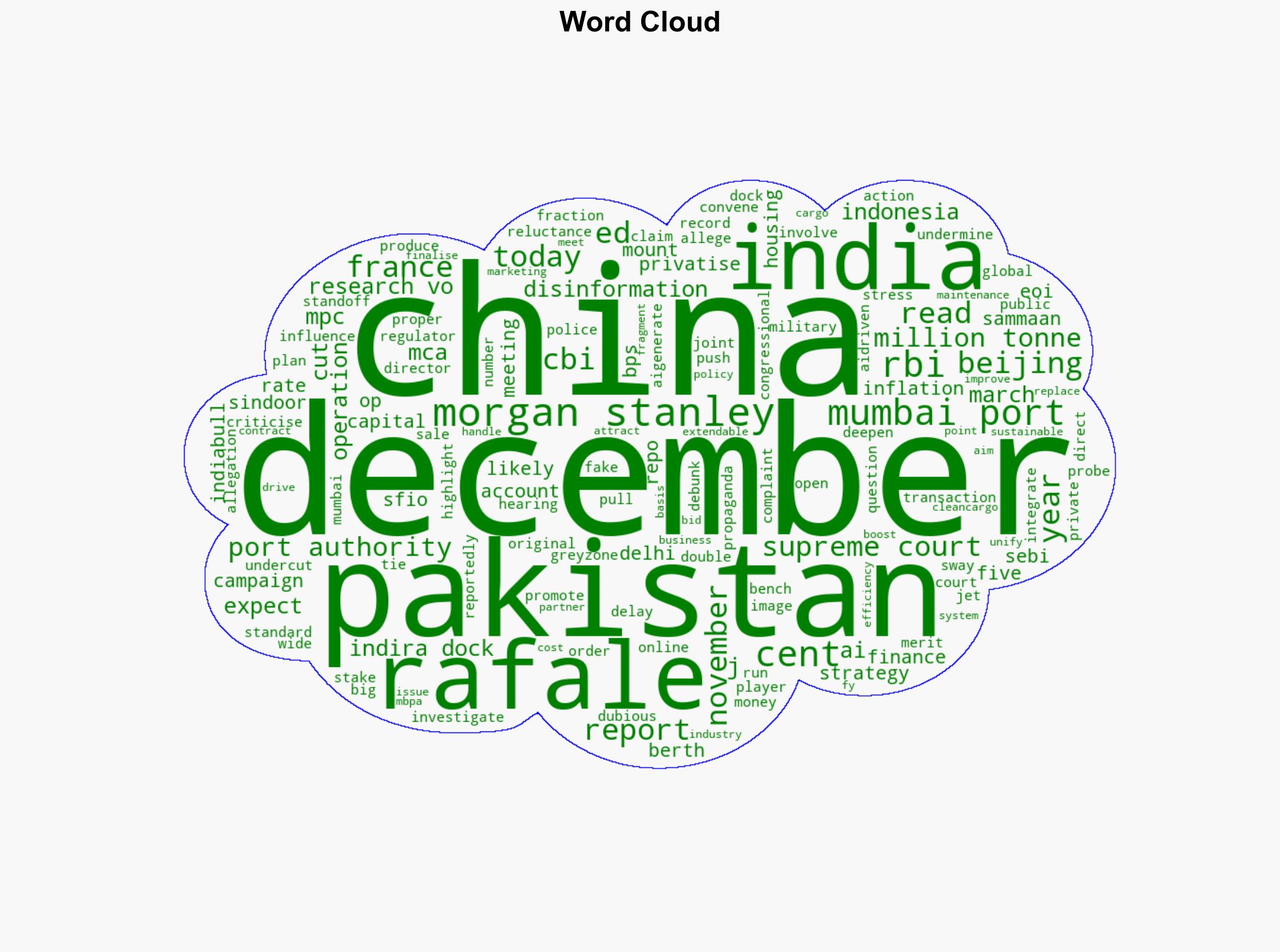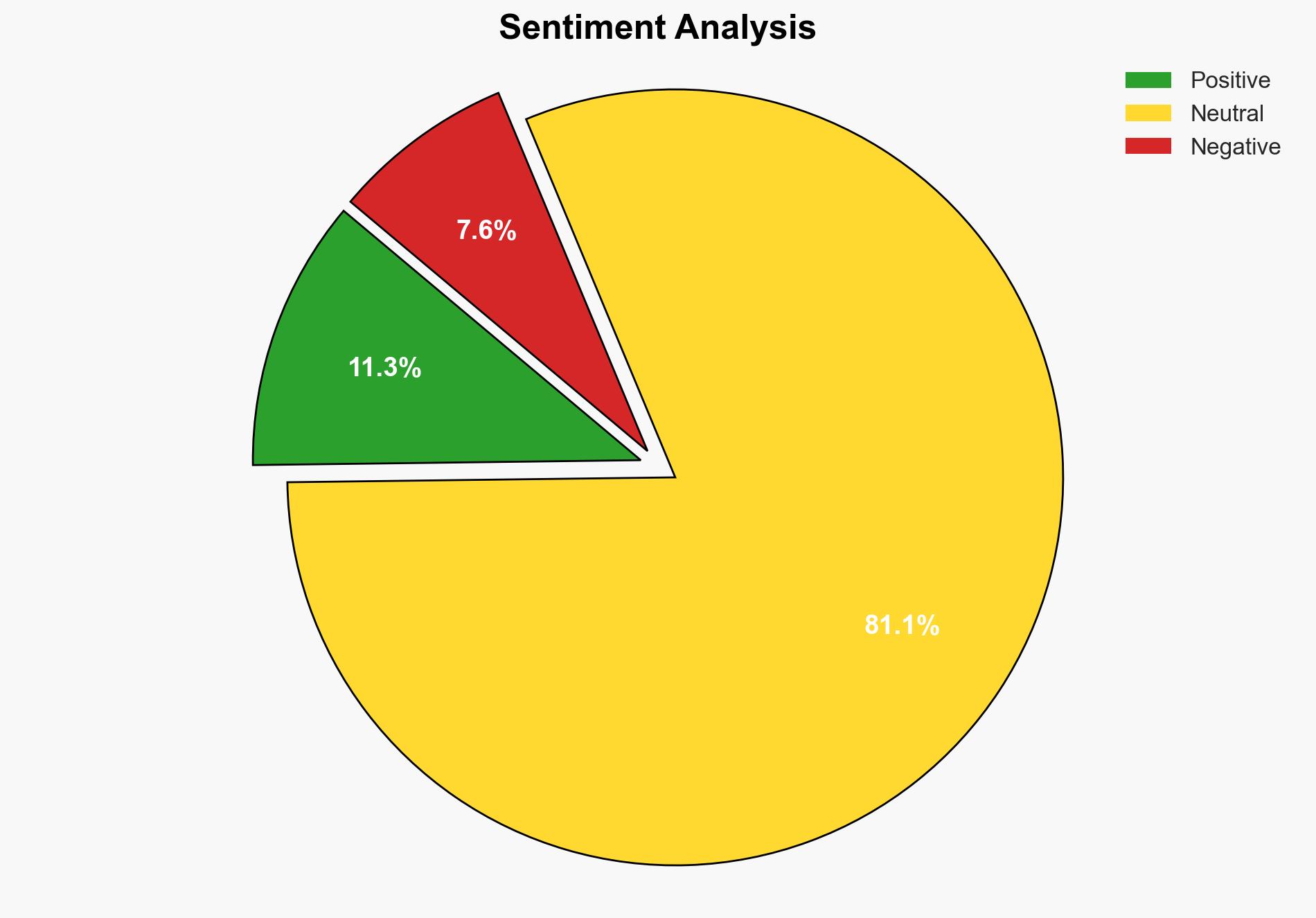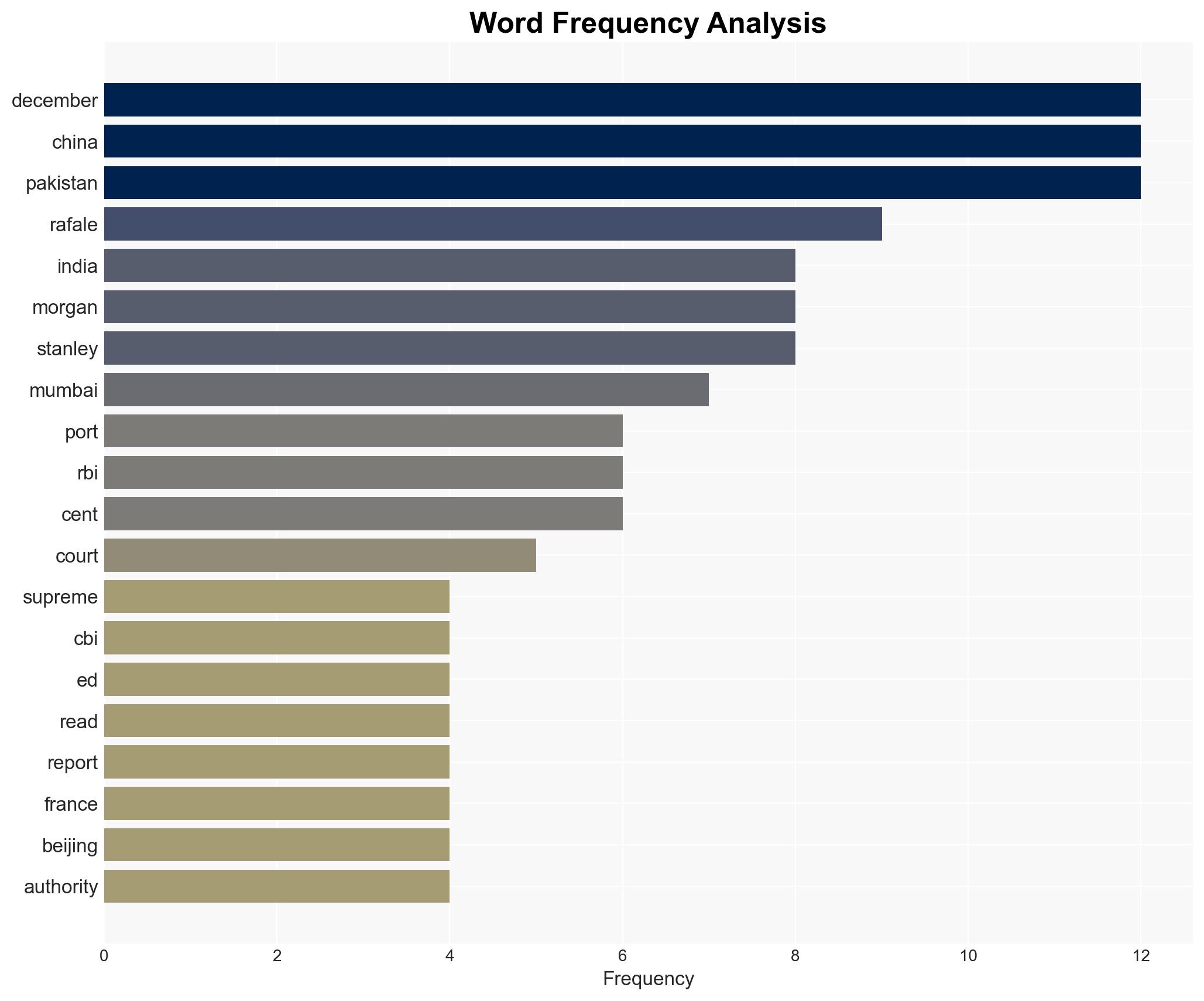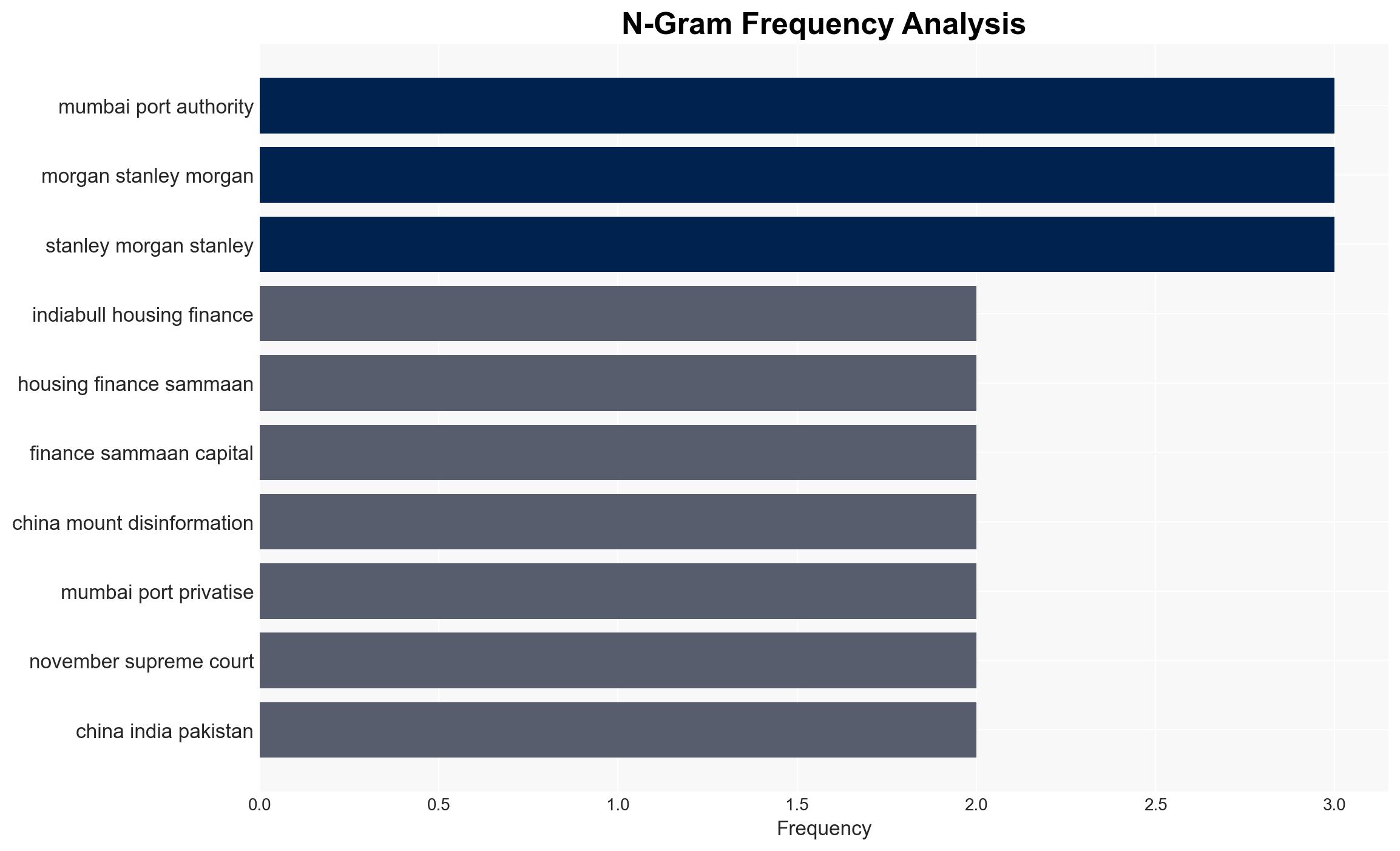Top Business Market Headlines Today BL Morning Report Nov 20 2025 – BusinessLine
Published on: 2025-11-20
AI-powered OSINT brief from verified open sources. Automated NLP signal extraction with human verification. See our Methodology and Why WorldWideWatchers.
Intelligence Report:
1. BLUF (Bottom Line Up Front)
With a moderate confidence level, the most supported hypothesis is that China’s disinformation campaign is strategically aimed at undermining India’s defense procurement and strengthening its ties with Pakistan. The recommended action is to enhance counter-disinformation capabilities and diplomatic engagement to mitigate the impact of such campaigns.
2. Competing Hypotheses
Hypothesis 1: China’s disinformation campaign is primarily aimed at undermining India’s defense procurement capabilities, specifically targeting the Rafale deal to weaken India’s military advantage.
Hypothesis 2: The campaign is a broader strategy by China to strengthen its geopolitical influence in South Asia by destabilizing India-Pakistan relations and promoting its military ties with Pakistan.
Hypothesis 1 is more likely due to the specific focus on the Rafale deal, which is a critical component of India’s defense strategy. However, Hypothesis 2 cannot be entirely discounted as it aligns with China’s broader regional strategic objectives.
3. Key Assumptions and Red Flags
Assumptions: It is assumed that the disinformation campaign is state-sponsored and that the information reported is accurate. There is also an assumption that the Rafale deal is a significant threat to China’s regional military balance.
Red Flags: The potential for misinformation or exaggeration in reports about the disinformation campaign. The possibility of overestimating the impact of such campaigns on India’s defense procurement decisions.
4. Implications and Strategic Risks
The disinformation campaign could lead to increased tensions between India and Pakistan, potentially escalating into military confrontations. It may also strain India’s diplomatic relations with France and other defense partners. Economically, it could impact defense procurement timelines and costs.
5. Recommendations and Outlook
- Enhance cybersecurity and counter-disinformation capabilities to detect and mitigate the impact of such campaigns.
- Engage in diplomatic dialogue with France and other allies to reinforce defense partnerships and counter misinformation.
- Best-case scenario: Strengthened international alliances and improved counter-disinformation strategies reduce the impact of such campaigns.
- Worst-case scenario: Escalation of India-Pakistan tensions leads to military conflict, and defense procurement is significantly delayed.
- Most-likely scenario: Continued disinformation efforts by China with limited but notable impact on regional stability and defense procurement processes.
6. Key Individuals and Entities
No specific individuals are mentioned in the source text. Key entities include the Supreme Court of India, CBI, SEBI, MCA, Indiabulls Housing Finance, Sammaan Capital, and the Mumbai Port Authority.
7. Thematic Tags
Regional Focus, Regional Focus: South Asia, China, India, Pakistan
Structured Analytic Techniques Applied
- Causal Layered Analysis (CLA): Analyze events across surface happenings, systems, worldviews, and myths.
- Cross-Impact Simulation: Model ripple effects across neighboring states, conflicts, or economic dependencies.
- Scenario Generation: Explore divergent futures under varying assumptions to identify plausible paths.
- Narrative Pattern Analysis: Deconstruct and track propaganda or influence narratives.
Explore more:
Regional Focus Briefs ·
Daily Summary ·
Support us





